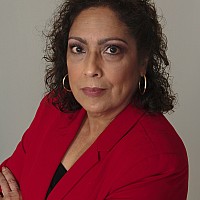For businesses, securing long-term growth and sustainability is paramount, and succession planning is an essential process in achieving this. The process aims to recognize and cultivate employees who exhibit the capacity to take on crucial leadership roles within the company down the line.
It takes a comprehensive and strategic approach, which includes an assessment of leadership abilities and potential, to find and choose the best candidate for higher positions or succession planning.



In this blog, we will discuss the essential steps and factors to consider when choosing a candidate for succession planning.
Here are some key factors to consider and methods to test candidates:
For businesses, securing long-term growth and sustainability is paramount, and succession planning is an essential process in achieving this. The process aims to recognize and cultivate employees who exhibit the capacity to take on crucial leadership roles within the company down the line.
It takes a comprehensive and strategic approach, which includes an assessment of leadership abilities and potential, to find and choose the best candidate for higher positions or succession planning.
In this blog, we will discuss the essential steps and factors to consider when choosing a candidate for succession planning.
Here are some key factors to consider and methods to test candidates:
1. Leadership Skills and Experience:
- You should choose applicants who have a history of completing successful leadership jobs or projects. Assess their prior accomplishments and duties to determine whether they are capable of handling executive-level responsibilities.
- Take into account the depth and intricacy of their prior roles. They may be ready for executive jobs if they have experience managing teams, finances, and strategic objectives.
- Look for applicants who can make decisions, solve problems, and communicate effectively. Another essential skill is the capacity to motivate and inspire people.
- You can also use the 70-20-10 rule in your organization to make your employees better leaders for the future.
2. Strategic Thinking and Vision:
- Next is to examine a candidate’s strategic thinking skills and capacity to see the organization’s future. Look for examples of their strategic approach in their previous positions and successes.
- Present realistic scenarios to candidates during interviews or evaluations and ask them for thoughtful responses. It will be clear if they possess the necessary analytical skills, long-term perspective, and creative thinking.
3. Adaptability and Change Management:
- It is the responsibility of executives to guide their organizations through change and transition. Look for people that have a history of navigating change successfully.
- You should consider how adaptable, quick, and receptive they are to new ideas. Ask about any times when they overcame difficulties without expecting it or changed their approach.
4. Emotional Intelligence and Relationship Building:
- Always look for candidates who have developed emotional intelligence and are able to effectively understand and connect with others on a deep, personal level. This allows them to foster meaningful relationships and achieve better results in their leadership roles.
- You can do this by analyzing a candidate’s interpersonal skills, conflict-resolution skills, and capacity to work well in diverse teams. Evaluate their ability to communicate, empathy, and self-awareness.
- To learn more about a candidate’s emotional intelligence and interpersonal abilities, take into account using behavioral evaluations or personality testing.
5. Succession Planning Assessments:
- To determine whether candidates are qualified for executive posts, you can create specific assessments or tasks.
- The efficacy of strong leaders can be assessed based on their traits as well as their ability to navigate complex circumstances, make tough decisions, and guide teams through simulations or practical scenarios.
- You can conduct panel interviews, which involve senior executives; this can offer diverse outlooks on a candidate’s possibilities and facilitate a thorough assessment.
6. References and Background Checks:
- When hiring someone from outside, it is important to check their performance, interpersonal skills, and leadership style. Contact their professional references to learn more about them.
- You should also perform rigorous background checks to confirm credentials, successes, and any potential red flags.
Conclusion:
Organizations can pinpoint individuals who are fit to thrive in leadership roles by taking into account factors such as expertise in leadership, the capability of strategic thinking, adaptability, emotional intelligence, and the ability to build strong relationships. Assessments, simulations, interviews, and reference checks can provide valuable insights into a candidate’s suitability for executive positions.
Remember, selecting the right candidate is essential for ensuring the long-term success and growth of the organization. By investing time and effort into the selection process, organizations can build a strong leadership pipeline and position themselves for sustained success in the future. Understand that succession planning is not just for emergencies; it’s a leadership development strategy. If you want to learn more about Succession planning, then check out our webinar.


